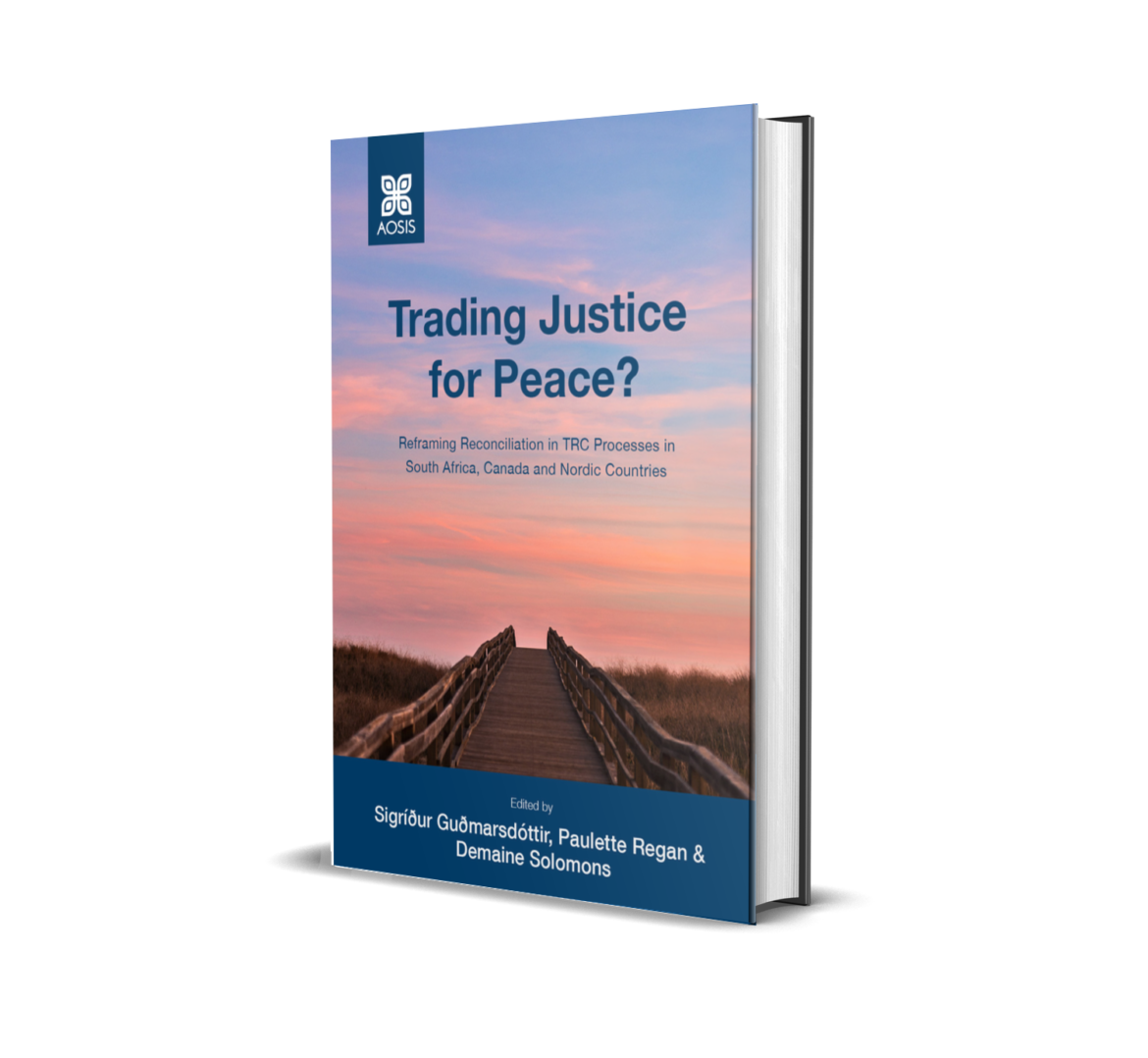Trading Justice for Peace? Reframing Reconciliation in TRC Processes in South Africa, Canada and Nordic Countries is published by AOSIS Scholarly Books.
Conflict in its various manifestations continues to be a defining feature in many places throughout the world. In an attempt to address such conflict, various forms of a Truth and Reconciliation Commission (TRC) have been introduced to facilitate the transition from social conflict to a new dispensation. The introduction and subsequent proceedings of TRCs in South Africa, Canada and Norway are widely regarded as good examples of this approach. Against this background, a number of researchers from VID Specialized University and the University of the Western Cape had an exploratory meeting in Oslo in 2018 where the possibility for a joint research project under the broad theme of ‘discourses on reconciliation’ was first discussed.
This led to two further research symposia in Cape Town and Tromsø in 2019. With the inclusion of specialists working on the Canadian Truth and Reconciliation process, these meetings demonstrated common ground and a shared understanding of the issues at stake. Moreover, it pointed to the differences between the South African, Canadian and Norwegian Commissions. In comparing the South African, Canadian and Norwegian experiences, researchers identified that these countries were, in fact, at different stages of their respective truth and reconciliation processes. This has prompted scholars to revisit and problematise these processes in relation to ongoing societal challenges. In all cases, it is quite apparent that reconciliation between individuals and groups remains a significant challenge.
Copyright (c) 2021 Demaine Solomons, Sigríður Guðmarsdóttir, Paulette Regan (Volume editor)
The introduction and subsequent proceedings of Truth and Reconciliation Commissions (TRCs) in South Africa, Canada and Norway are good examples in defining ongoing societal challenges to reconciliation between individuals and groups. One overarching theme that emerges for reconciliation to be genuinely transformative, is that it must be rooted in truth and justice. Another theme in the book reveals the tensions between two inter-related dimensions of the truth and reconciliation process that all TRCs must navigate with the purpose of real societal change. ‘On the one hand, commissions must attend to both relational and structural issues of past and present injustice that must be rectified through concrete action. On the other hand, they must educate citizens about the importance of examining national histories and making space for historical counter-narratives of social memory and justice by publicly revealing previously silenced truths that lie at the heart of these unresolved tensions and damaged relations’. This book is a must-read for people who are concerned with reconciliation occurring in the world as a quest for truth and justice. The book generates a dialogue between the authors within and between each chapter, with several key cross-cutting themes and topics that develop in a comparative, transnational perspectives on truth, justice, and reconciliation.
Dr Rudy A. Denton, Department of Practical Theology, Faculty of Theology, North-West University, Potchefstroom, South Africa

